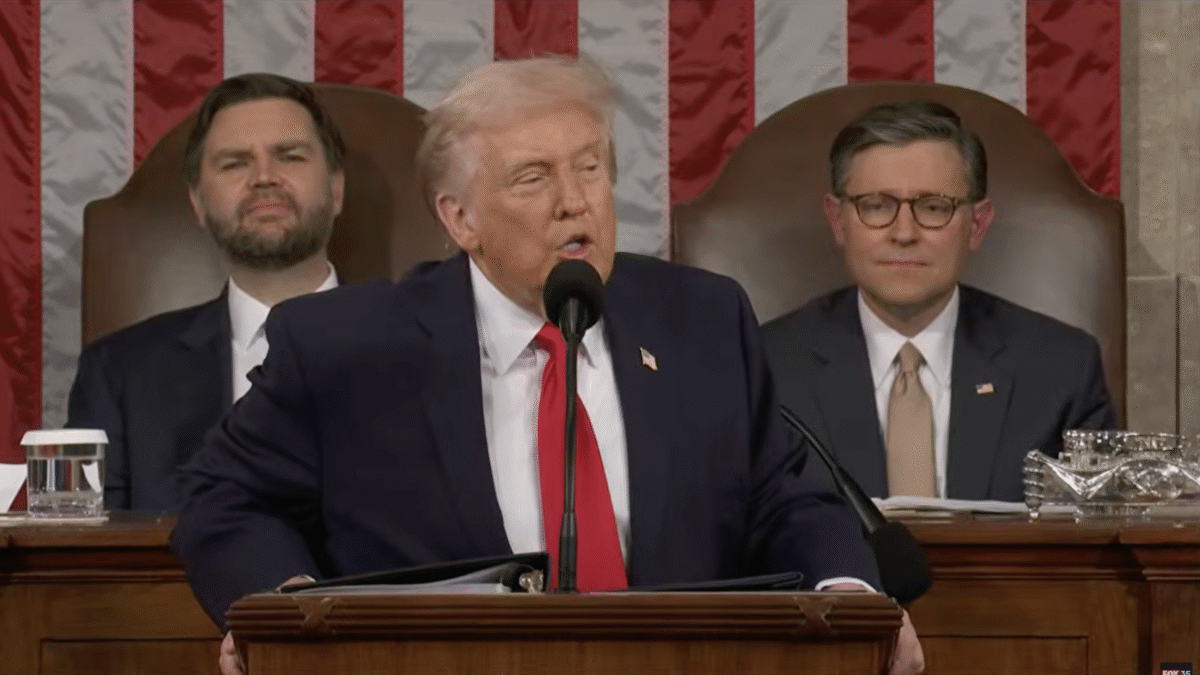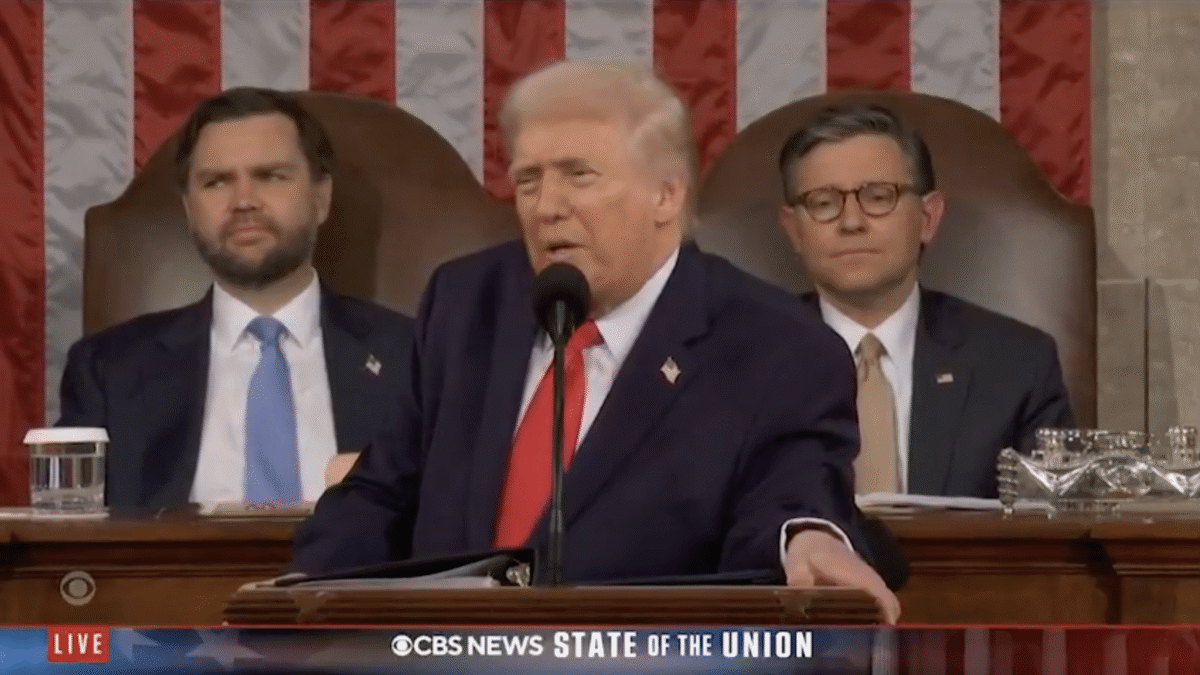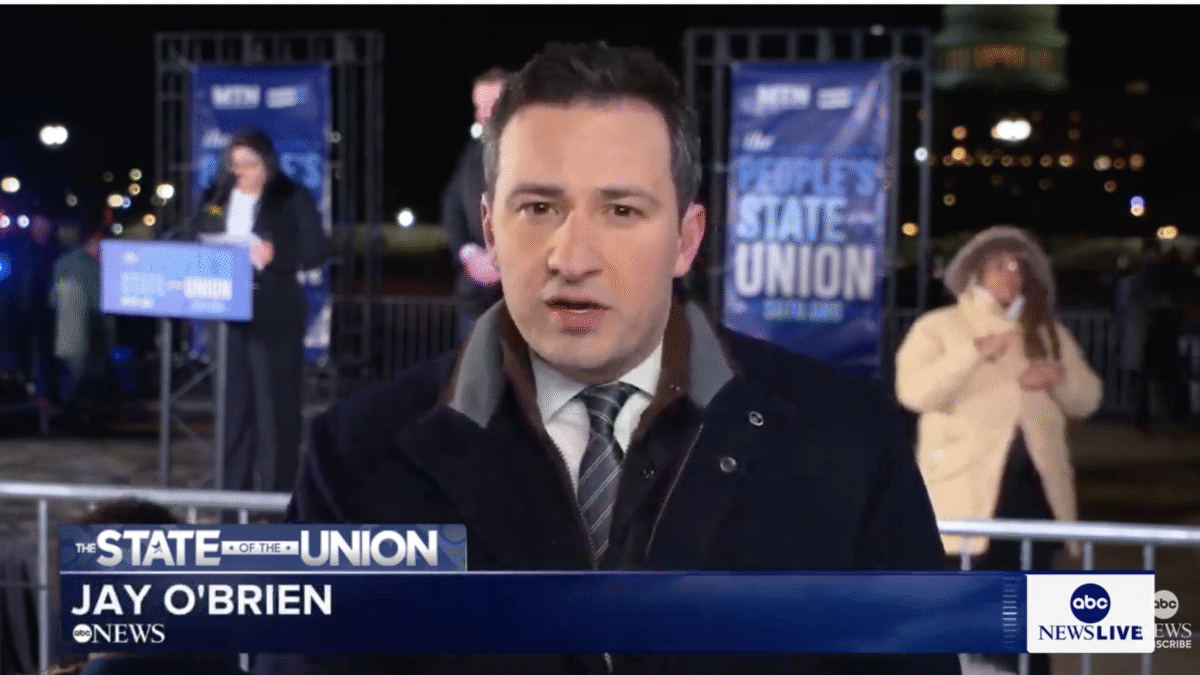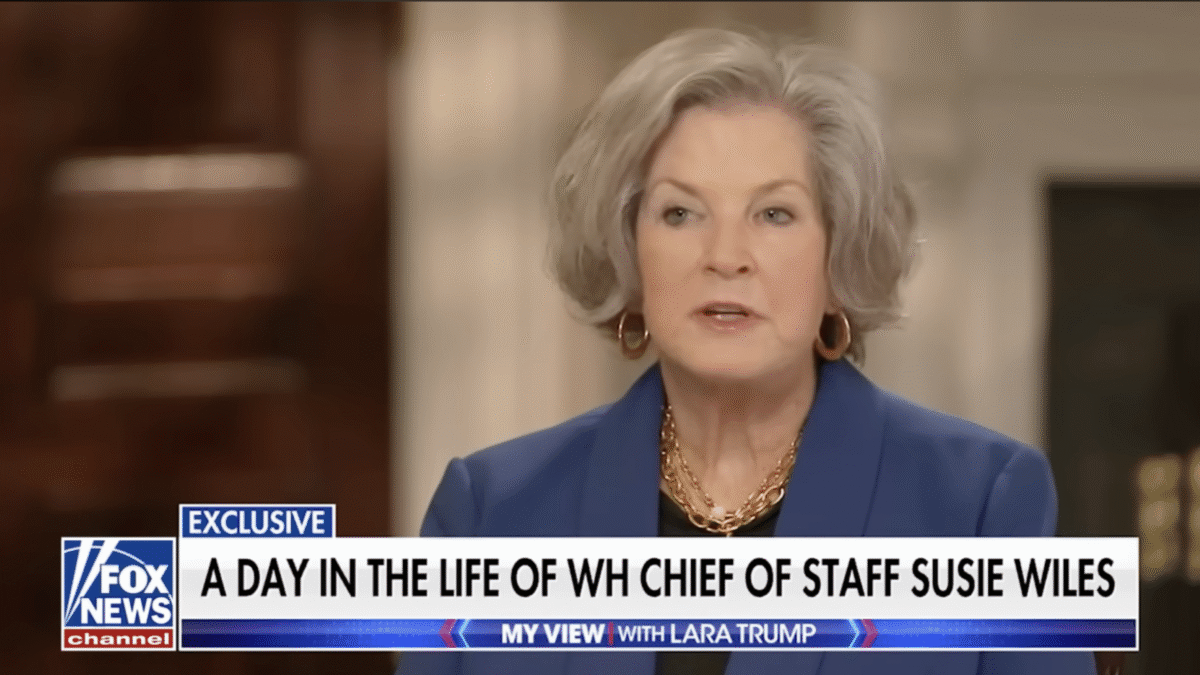
Last year the Centers for Disease Control reported 644 domestic cases of measles, a respiratory disease spread through the air. Already in January of this year there are 102 people in 14 states who have it, most of this related to being at Disneyland in mid-December. That’s the main reason why California has 92 of those 102 confirmed cases. The disease was eliminated in the United States by 2000 but can be brought back and spread via international travelers. All states have rules requiring a measles vaccine for children in public school but some exemptions are allowed. The exemptions are disconcerting to some.
We see stories such as this one from September in The Atlantic: “Wealthy L.A. Schools’ Vaccination Rates Are as Low as South Sudan’s: Hollywood parents say not vaccinating makes ‘instinctive’ sense.” The full story from The Hollywood Reporter is fascinating. More recently we saw this from a local CBS affiliate: “Berkeley’s Measles Ultimatum: 21-Day Quarantine For Unvaccinated Kids If Outbreak Spreads.” BuzzFeed notes that half of the children that attend some Marin County schools north of San Francisco are not vaccinated. The Washington Post notes that the California communities where anti-vaccinators cluster are also the most liberal, voting overwhelmingly for President Obama.
For some reason, many in the media (as well as other liberal commentators) decided to try to make this story about a measles outbreak in California and a concern about vaccination rates in Hollywood, Marin County and Berkeley into an existential problem for — stay with me here because it makes zero sense if you’re not a hack — the Republican Party and conservatives. It’s an odd, perhaps even desperate and clownish, choice. But such is what our political media does these days. See, for example, the completely manufactured and orchestrated “War on Women.”
Here are three obvious but important ways the media demonstrated a disgusting partisan slant instead of good journalism.
1. It is indefensible to spin this as a problem for Republicans.
What got liberals in the media going this week was a statement made by New Jersey Gov. Chris Christie, a Republican:
“Mary Pat and I have had our children vaccinated, and we think that it’s an important part of being sure we protect their health and the public health,” the likely 2016 presidential candidate said while in Cambridge, England. The Republican also noted: “I also understand that parents need to have some measure of choice in things as well, so that’s the balance that the government has to decide.”
Not three days earlier, we had this nearly identical statement from the White House, currently occupied by a Democrat. Nota bene: the President is actually the highest office in the land, even higher than the governor of New Jersey:
"Well, the President certainly believes that these kinds of decisions are decisions that should be made by parents, because ultimately when we’re talking about vaccinations, we’re typically talking about vaccinations that are given to children. But the science on this, as our public health professionals I’m sure would be happy to tell you, the science on this is really clear."
Both President Obama and Gov. Christie are, in fact, articulating what is state policy in all 50 states. At least to some degree. All 50 states require vaccination and all 50 allow parents to opt-out for medical reasons. All but two allow opt-outs for religious or other reasons. The two that allow no non-medical opt-outs? The super-liberal Democratic states of … oh dear, this doesn’t fit the narrative at all, does it … Mississippi and West Virginia.
Now, outfits such as Mother Jones, Rolling Stone and Salon have all published anti-vaccination pieces in the past decade. The latter two, in fact, published a piece by Robert F. Kennedy, Jr. You can probably guess a little something about his political affiliation. But that doesn’t mean that concerns about vaccination are exclusively on the left.
A late January survey by YouGov asked “Do you think early childhood vaccinations can cause autism?” The percentage who responded “definitely” or “probably”: 13% of Democrats, 15% of Independents and 11% of Republicans. It also asked, “When it comes to childhood diseases, like measles, mumps, and whooping cough, should all children be required to get vaccinations or should parents be able to decide whether or not to vaccinate their children?” More on the inadequacies of this question later, but 70% of Democrats, 48% of Independents and 57% of Republicans said it should be required. The survey asked “Have you received the MMR (measles, mumps and rubella) vaccinations?” Republicans were most likely to say yes, at 78%. Democrats and Independents were tied at 69%. Republicans were also most likely to say that they had vaccinated their children, with 88% saying they had, compared to 82% of Democrats with children and 79% of Independents. Finally, Republicans were also more informed about the measles outbreak, with 84% reporting they knew about it compared to 66% of Democrats and Independents. To put it mildly, this is not an issue on which you see a clear partisan divide, particularly not in one particular direction.
But many in our political media — not known for being deep thinkers but known for loving to play gotcha, no matter how little it brings to the discussion — decided that this issue of Berkeley, Marin County and Hollywood parents needed to be jujitsued into a problem for the GOP.
A perfect example comes from Jeremy W. Peters of the New York Times:
The politics of medicine, morality and free will collide as GOP debates itself again over established science: http://t.co/Ofd6v1fTzH
Jeremy W. Peters (@jwpetersNYT) February 3, 2015
Here’s some text from his story. Again, this is the New York Times and not Daily Kos diaries:
Really. Really. http://t.co/oLz7gSDIgx @MZHemingway pic.twitter.com/HmpkFHK89F
Gabriel Malor (@gabrielmalor) February 3, 2015
.@noonanjo @MZHemingway @TheH2 It is the entire premise of the piece: pic.twitter.com/iy52zxKbC2
Gabriel Malor (@gabrielmalor) February 3, 2015
Oh for crying out loud. The desperation. Imagine if you got your news only from the New York Times, and how bigoted that would make you against non-liberals.
Anyway, Peters and other groupthinkers went around writing stories about how Republicans have some huge vaccine problem, facts be cast aside. And they went out of their way to ask GOP politicians questions about whether they agreed with this largely universal vaccination approach. But then they framed such agreement in the most nefarious of terms. This was only practiced on GOP politicians, mind you. Not Democrats.
Fun fact about Jeremy W. Peters. I tweeted:
New rule: 100% of journalists must ask 100% of Democrats when science says life begins before uttering the word “vaccine” even one more time
Mollie (@MZHemingway) February 3, 2015
A reader reminded me of a curious historical footnote. A few years ago John McCormack, a reporter for the Weekly Standard, asked Nancy Pelosi, “What is the moral difference between what Dr. Gosnell did to a baby born alive at 23 weeks and aborting her moments before birth?” Now, political journalists know that only pro-life candidates should be on the receiving end of difficult abortion questions. So it’s funny to note what the transcript of this reporter scrum says next (spoiler: Pelosi doesn’t answer the question and no other reporter presses it):
PELOSI: You're probably enjoying that question a lot, I can see you savoring it. [Laughter in press corps] Let me just tell you this.
Who was the reporter in question? It was Peters. Peters bust a gut laughing. Isn’t that so weird? That the same reporter who is making up crap about vaccines being a political problem for Republicans would help out Nancy Pelosi when a single reporter asks her a tough question about her radical abortion stance? That is so weird!
But, yeah, good work each and every one of you reporters who made this fake story something to waste time on this week. You’re all hacks.
2. Hypocrisy in pandemic fear
Symptoms of measles include fever, runny nose, sore throat and all-over body rash. According to the Washington Post:
Fatalities are rare in the United States, but one or two of every 1,000 children who contract measles will die from the disease, according to Anne Schuchat, director of the CDC’s National Center for Immunization and Respiratory Diseases. More common complications include pneumonia, encephalitis (swelling of the brain) and deafness. Pregnant women who get the measles may give birth prematurely or deliver low-birth-weight babies.
Symptoms of Ebola include, according to the CDC:
Fever, severe headache, muscle pain, weakness, fatigue, diarrhea, vomiting, abdominal (stomach) pain, unexplained hemorrhage (bleeding or bruising).
The fatality rate for Ebola cases from last year is 71%, according to the CDC.
No one wants to get measles, a disease we know a fair bit about and which many Americans of a certain age contracted as children. But it doesn’t even come close to the scare of getting Ebola and having it liquify your organs.
Remember how the media treated Americans who were a bit freaked out about the spread of Ebola? I do. See “Media Should Stop Lecturing Americans About Their Ebola Concerns” and “Media’s ‘Panic Panic’ Is Reaching New Annoying Levels With Quarantines.” The joke of a site PolitiFact even made concerns about Ebola it’s “Lie of the Year.”
You may remember that NBC journalist Nancy Snyderman broke her Ebola quarantine, to the outrage of her neighbors. You will never believe what she tweeted this week:
When free will trumps public health we put our nation's most vulnerable at risk. That doesn't seem very American to me. Vaccinate #measles
Dr. Nancy Snyderman (@DrNancyNBCNEWS) February 3, 2015
Yes, the same woman who broke her Ebola quarantine wrote that tweet.
On that note, remember the media outrage when certain governors took the Ebola threat more seriously than some in the media? It was crazy. Read this link for some of the details, but a nurse who was quarantined by Chris Christie said her human rights had been violated. Various reporters were absolutely outraged that readers didn’t seem to care about this.
But now that you have certain politicians saying it’s important to balance public health programs with concerns about liberty, the media are in full-on panic mode, writing as many stories they can about how Sen. Rand Paul is the world’s greatest threat. Here, for example is how one journalist responded to a tweet by Rand Paul (since deleted and language warning).
Charming. pic.twitter.com/ZBeDlnbIDX
Mollie (@MZHemingway) February 3, 2015
Talk about hysteria.
Listen, I’m generally on the side of people who fear bad diseases, whether they’re the liquifying organs kind or the bad rash on your body kind, and whether there’s a widespread vaccine in use against it or not. But could we get some consistency here? A standard other than the “be on the side that hurts Republicans” standard the media are experts in?
3. Defining the terms
NPR had an interesting story four years ago about vaccination and public health threats. Here’s a portion of the discussion with Michael Willrich, author of “Pox: An American History.”
From the very start of the organized vaccination campaign against smallpox, there was public resistance, says Willrich. The battle between the government and the vocal anti-vaccinators came to a head in a landmark 1902 Supreme Court decision, where the Supreme Court upheld the right of a state to order a vaccination for its population during an epidemic to protect the people from a devastating disease.
"But at the same time, the Court recognized certain limitations on that power — that this power of health policing was no absolute and was not total and there was a sphere of individual liberty that needed to be recognized," says Willrich. "Measures like this needed to be reasonable and someone who could make a legitimate claim that a vaccine posed a particular risk to them because of their family history or medical history [would not have to be vaccinated.]" In addition, the Supreme Judicial Court of Massachusetts stipulated that a state couldn't forcibly vaccinate its population. "[They said,] 'Of course, it would be unconstitutional and go beyond the pale for health officials to forcibly vaccinate anyone because that's not within their power,'" says Willrich. "And I think that's really a shoutout to the Boston health authorities who were employing forcible vaccination all the time in the poorest neighborhoods in the city."
Would these court decisions be called “anti-vaxxer,” the media adjective du jour? Consider this tweet from BuzzFeed’s Adam Serwer:
here's a weird CW that anti vaxxers are mostly lefties but it's a ver bipartisan fringe http://t.co/tCtYOnnGdr pic.twitter.com/CotlsRys57
Adam Serwer (@AdamSerwer) February 3, 2015
Leaving aside the idea that 26% to 30% of a group could be described as fringe, what we see is a conflation of opposition to vaccines with opposition to forced government vaccination. Here might be another example.
What does “mandatory” vaccination mean? Does it mean something that allows that the “power of health policing is not absolute” as the Courts might say? Or does it mean we fine and jail parents who choose not to vaccinate their children? Does it mean we take children away from parents who don’t vaccinate? Or does it mean we don’t allow non-vaccinated children in public schools?
Does it matter why parents are choosing not to vaccinate their children? Is it because they have moral objections to using vaccines developed from aborted babies? Is it because their child has medical problems that would be compounded by a vaccine injection? Is it because they’re philosophically opposed to medicine? Is it because they believe discredited studies about a link between autism and vaccines? What lines should be drawn?
I get that the media really want to do some bullcrap horse-race point-scoring partisan sniping right now. But these are actually important questions. And “gotcha” reporting may get you butt-slapped by your fellow reporters at the bar, but it’s actually really dangerous.
Vaccinations are too important to be sucked into a politicized debate and the media should be ashamed for trying so hard to make it so. Vaccines are one of the most agreed-upon topics regardless of political leaning. We already mandate vaccinations in 50 states. Journalistic discussion of whether the exemptions to these mandates are too broad or too narrow is legitimate, even if media panic seems a bit overwrought right now. There is no way that debate goes well if it becomes the media’s next “War on Women” type exercise of water carrying for Democrats.









